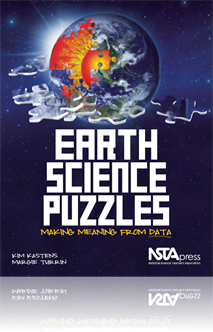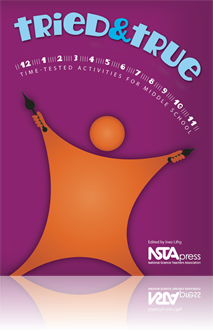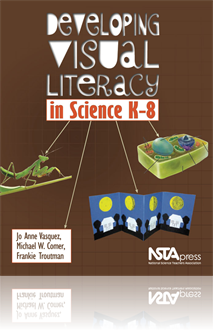All Book Chapters
Book Chapter
Is the Hudson River Too Salty to Drink?
In this puzzle, students examine three different sets of salinity data collected from the Hudson River estuary in New York. The puzzle includes data collected along the length of the estuary on the same date; data collected over a span of days that...
Book Chapter
In this Data Puzzle, students calculate the amount of precipitation that fell in a watershed over the course of one year and the amount of water that exited from that watershed via the outflow stream. They then compare these two values and draw on th...
Book Chapter
How Much Heat is Released by a Seafloor Hydrothermal Vent?
In this Data Puzzle, students compare the amount of heat given off by a hydrothermal vent with the amount of heat needed to bring a kettle of water up to boiling temperature. Recognizing that the heat released from one vent in an hour would heat a cu...
Book Chapter
How the Brain Visually Perceives the World
These classic activities explore how our eyes and brain receive and process visual information. Each activity requires approximately five minutes. For a richer experience with these activities, consult a neuroanatomy guide with labeled images of the ...
Book Chapter
As students try out visual literacy tools, they will begin to “see” concepts and build relationships among ideas by layering new information onto existing knowledge. This chapter is an overview of the concept of visual literacy and of the skill ...
Book Chapter
A single still photographic image can easily communicate a vast amount of information. A photograph can capture the meaning of a complex idea or concept that would require many pages of text to describe. This chapter provides you with strategies and...
Book Chapter
Students encounter a variety of diagrams in their lives that convey a variety of scientific and technical information. This chapter reviews the skills and techniques necessary for analyzing and interpreting diagrams of several levels of complexity. ...
Book Chapter
Creating Visual Thinking Tools
When we help students discover tools and techniques for organizing the vast amount of information presented to them, they will be much better prepared to recall, retell, or make meaning from text. In this chapter, the authors examine brainstorm webs...
Book Chapter
Three-Dimensional Graphic Organizers ("Foldables")
A foldable is a three-dimensional graphic organizer that allows learners to record and process new words and concepts in a hands-on, kinesthetic way. It helps increase students’ visual-spatial learning, which research has shown to be critical to lo...
Book Chapter
Visual Literacy in Life Science: Insect Metamorphosis
The authors invite you to come with them on a learning journey. Chapters 6, 7, and 8 are designed to help you practice your visual literacy teaching strategies. Even though each of these chapters follows the same format, each one addresses a differen...
Book Chapter
Visual Literacy in Physical Science: Force and Motion
Chapters 6, 7, and 8 are practice chapters. Each chapter provides the appropriate content standards for grades K-4 and 5-8 and several partial lessons and each follows the same format but addresses a different content area. This chapter addresses phy...
Book Chapter
In this chapter the authors show that “being literate” is no longer limited to reading and writing. Literacy has come to include much more, including the ability to access, analyze, evaluate, and communicate in a variety of forms. Visual literac...
Book Chapter
Understanding Force and Motion
The objects will not change position from their initial rest positions because the downward force on each side of the pulley (ignoring the weight of the string) is the same and the net force on each side of the pulley is zero. The gravitational attra...
Book Chapter
Understanding Floating and Sinking
Predict, Observe, Explain (POE) sequences provide an important way to enhance students' understanding of important scientific ideas. In this chapter, the series of experiments help students understand floating and sinking. The experiments include co...
Book Chapter
Predict, Observe, Explain (POE) sequences provide an important way to enhance students' understanding of important scientific ideas. In this chapter, the series of experiments help students understand solutions. The experiments include concepts such...






